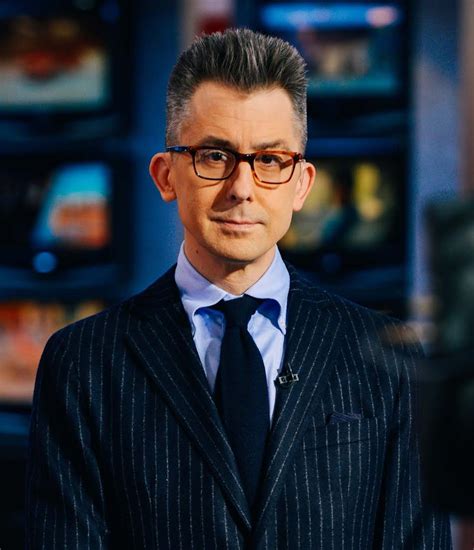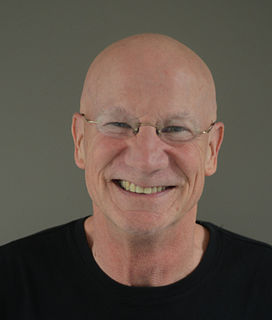A Quote by Carlos Ruiz Zafon
Once, in my father's bookshop, I heard a regular customer say that few things leave a deeper mark on a reader than the first book that finds its way into his heart. Those first images, the echo of words we think we have left behind, accompany us throughout our lives and sculpt a palace in our memory to which, sooner or later—no matter how many books we read, how many worlds we discover, or how much we learn or forget—we will return.
Quote Topics
Accompany
Accompany Us
Behind
Book
Books
Customer
Deeper
Discover
Echo
Father
Few
Few Things
Finds
First
Forget
Heard
Heart
His
How
How Much
Images
Later
Learn
Leave
Left
Left Behind
Lives
Many
Mark
Matter
Memory
Much
Once
Our
Our Lives
Palace
Read
Reader
Regular
Return
Say
Sculpt
Sooner
Sooner Or Later
Than
Things
Think
Those
Throughout
Us
Way
Which
Will
Words
Worlds
Related Quotes
How is it that the poets have said so many fine things about our first love, so few about our later love? Are their first poems their best? or are not those the best which come from their fuller thought, their larger experience, their deeper-rooted affections? The boy's flute-like voice has its own spring charm; but the man should yield a richer, deeper music.
Every life is inexplicable, I kept telling myself. No matter how many facts are told, no matter how many details are given, the essential thing resists telling. To say that so and so was born here and went there, that he did this and did that, that he married this woman and had these children, that he lived, that he died, that he left behind these books or this battle or that bridge – none of that tells us very much.
So that's how we live our lives. No matter how deep and fatal the loss, no matter how important the thing that's stolen from us--that's snatched right out of our hands--even if we are left completely changed, with only the outer layer of skin from before, we continue to play out our lives this way, in silence. We draw ever nearer to the end of our allotted span of time, bidding it farewell as it trails off behind. Repeating, often adroitly, the endless deeds of the everyday. Leaving behind a feeling of immeasurable emptiness.
Encourage others each and every day-nothing's more important than our words. Did you know that, on average, each of us speaks about twenty-five thousand words daily? My last book didn't have that many words. A lot of language is flowing out of our mouths every day and having an impact on those around us. But how much of that flow is fulfilling God's intended purpose for our speech? How much of it reflects pride, rather than a gospel-motivated humility?
How many of us will be saved the pain of seeing the most important things in our lives disappearing from one moment to the next? I don't just mean people, but our ideas and dreams too: we might survive a day, a week, a few years, but we're all condemned to lose. Our body remains alive, yet sooner or later our soul will receive the mortal blow. The perfect crime - for we don't know who murdered our joy, what their motives were, or where the guilty parties are to be found...they too are the victims of the reality they created.
If we don't understand how metaphor works we will misunderstand most of what we read in the Bible. No matter how carefully we parse our Hebrew and Greek sentences, no matter how precisely we use our dictionaries and trace our etymologies, no matter how exactly we define the words on the page, if we do not appreciate the way a metaphor works we will never comprehend the meaning of the text.
I feel lucky that I read so many books as a kid because I know that no matter how much I appreciate a book now, and I can love a book very much, it's never going to be that childhood passion for a book. There's some element, something special about the way they're reading books and experiencing books that's finite.
No matter what we have come through, or how many perils we have safely passed, or how many imperfect and jagged - in some places perhaps irreparably - our life has been, we cannot in our heart of hearts imagine how it could have been different. As we look back on it, it slips in behind us in orderly array, and, with all its mistakes, acquires a sort of eternal fitness, and even, at times, of poetic glamour.
Our struggle to put first things first can be characterized by the contrast between two powerful tools that direct us: the clock and the compass. The clock represents our commitments, appointments, schedules, goals, activities - what we do with, and how we manage our time. The compass represents our vision, values, principles, mission, conscience, direction - what we feel is important and how we lead our lives. In an effort to close the gap between the clock and the compass in our lives, many of us turn to the field of "time management."
Many have marked the speed with which Muad'Dib learned the necessities of Arrakis. The Bene Gesserit, of course, know the basis of this speed. For the others, we can say that Muad'Dib learned rapidly because his first training was in how to learn. And the first lesson of all was the basic trust that he could learn. It is shocking to find how many people do not believe they can learn, and how many more believe learning to be difficult. Muad'Dib knew that every experience carries its lesson.
It may merely be apocryphal that when the Wizard saw the glass bottle he gasped, and clutched his heart. The story is told in so many ways, depending on who is doing the telling, and what needs to be heard at the time. It is a matter of history, however, that shortly thereafter, the Wizard absconded from the Palace. He left in the way he had first arrived-- a hot-air balloon-- just a few hours before seditious ministers were to lead a Palace revolt and to hold an execution without trial.
Sooner or later, the ones who told you that this isn't the way it's done, the ones who found time to sneer, they will find someone else to hassle. Sooner or later, they stop pointing out how much hubris you've got, how you're not entitled to make a new thing, how you will certainly come to regret your choices. Sooner or later, your work speaks for itself. Outlasting the critics feels like it will take a very long time, but you're more patient than they are.
How many times have you opened a book, read the first few sentences and made a snap decision about whether to buy it? When it's your book that's coming under this casual-but-critical scrutiny, you want the reader to be instantly hooked. The way to accomplish this is to create compelling opening sentences.




































